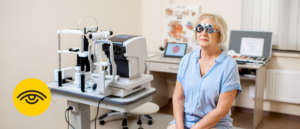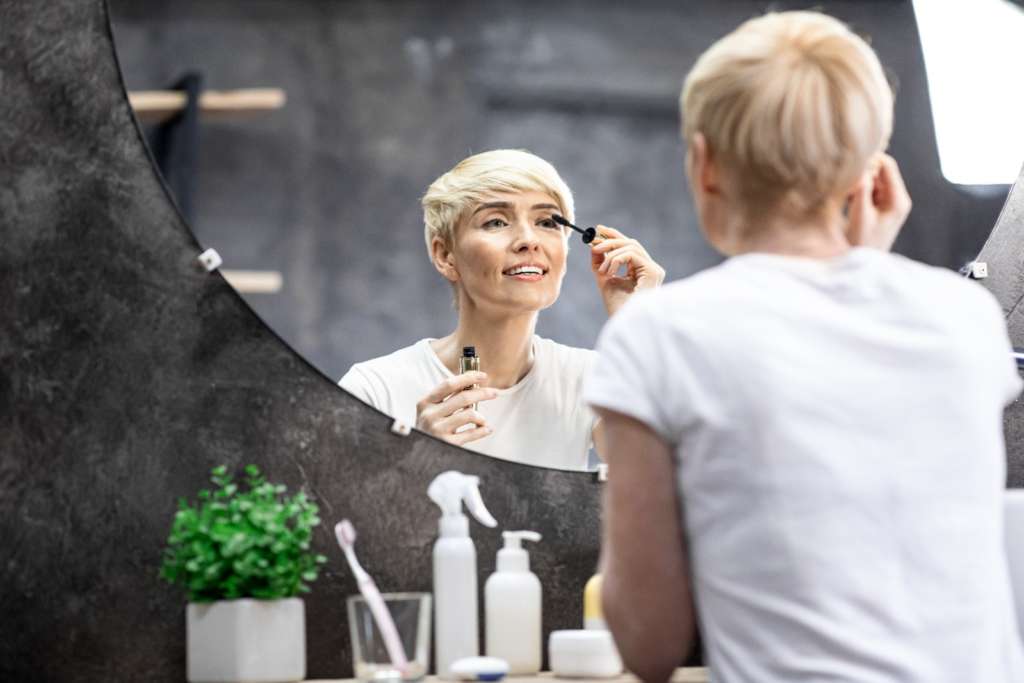

Elderly eye health – encouraging your parents to get their eyes checked
Just like physiotherapy and regular doctor appointments, elderly eye health is an important aspect to growing older. We know it can be difficult to encourage


Whether your wear it daily or it’s a special occasion thing, protecting your eye health when using make-up should be a priority.
People have been wearing cosmetics for thousands of years and, while eye health and make-up don’t always go hand-in-hand, the ingredients used today are more sophisticated than they once were. Your everyday eyeliner is much safer than kohl (a combination of burnt almonds, oxidized copper, copper ores, lead, ash, and ochre), which Ancient Egyptians used to adorn their eyes in an almond shape.
Our eyes are sensitive organs, and bad make-up hygiene habits puts them at risk from a range of serious problems, including:
Every time you wear eye make-up, its important to follow some key steps to help minimise the potential for bacteria to infect your eyes.
This is important as it removes a potential irritant and prevents bacteria from building up. Your eyes need sleep to rest, recover, and clean themselves. Make-up can interrupt this process.
Choose one that is made specifically for the eyes, and for sensitive skin if you can. Avoid removers that contain alcohol or sodium lauryl sulphate, as these will irritate your eyes. Make sure you wash your face with clean water after using cleansers to remove any leftover irritants.
Just like it’s not safe to drink expired milk, eye health and make-up also operate according to use-by dates. After this date, your make-up is not safe to use – and the same goes with expired prescriptions that may offer outdated lenses. So be sure to check these dates!
Sharing make-up is an easy way to transfer infection from one person to another. If you share make-up with someone suffering from infective conjunctivitis, even if they don’t know they have it, then it is highly likely you will develop it too.
Firstly, it will slow down the healing process by irritating the eye or introducing new infections into an already vulnerable eye. And any make-up you do use will become infected and you will have to throw it away anyway – unless you want the infection to come back!
Tiny glitter particles can easily get into your eyes and cause damage to the delicate skin that protects them. Keep your eye health and make-up priorities in mind by opting for softer pigments that don’t feature hard glitter particles.
This will remove any bacteria that has started growing there. Plus, they’re easier to use when they aren’t all clogged up with old make-up!
After a long day of wearing make-up your eyes may be dry and irritated. After cleaning off your make-up, add a few eye drops to soothe your dry, tired and irritated eyes.
If you’re a daily eye make-up wearer, it’s a good idea to give your eyes a break every now and then, regardless of how good your make-up hygiene regime is.
We only have one pair of eyes, so it’s important to look after them! Maintain balance when it comes to your eye health and make-up routine by following the steps outlined here. And, if you think there is something wrong with your eyes, drop in to The Eye Place and let Adam take a look.


Just like physiotherapy and regular doctor appointments, elderly eye health is an important aspect to growing older. We know it can be difficult to encourage


Astigmatism is caused by the cornea or lens of the eye not being perfectly curved, resulting in blurred vision. How this affects you is varied


When you use your eyes to concentrate on something for a long period of time the common result is eye strain. Tired, sore, and itchy
Monday 9am–5:30pm
Tuesday 9am–5:30pm
Wednesday 9am–5:30pm
Thursday 9am–6:30pm
Friday 9am–5:30pm
Saturday Closed
Sunday Closed